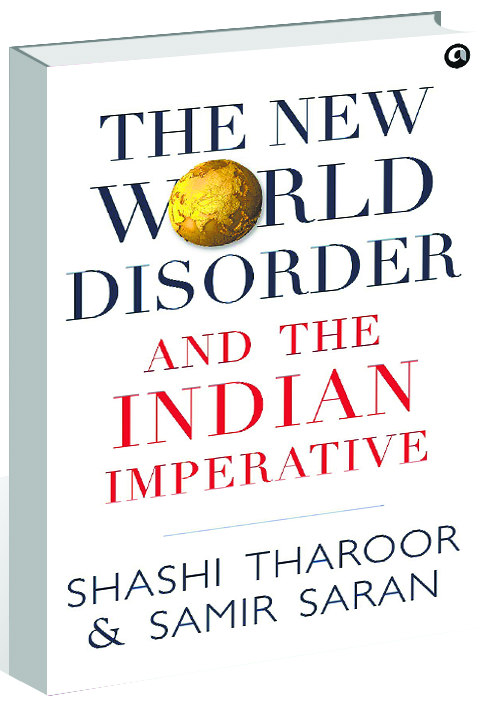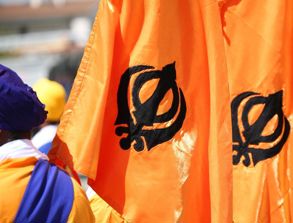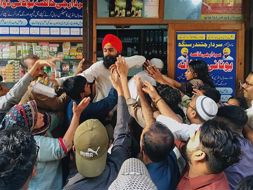The New World Disorder And the Indian Imperative by Shashi Tharoor and Samir Saran. Aleph. Pages 292. Rs 799
Book Title: The New World Disorder And the Indian Imperative
Author: Shashi Tharoor and Samir Saran
Shelley Walia
The new world order, that George Bush imagined, saw its final appearance in the formation of the WTO on January 1, 1995, in Geneva. The supranational body, together with the IMF and World Bank, held out the promise of international financial and political stability ensured by the explicit understanding of the former Soviet Union and its satellites agreeing to go along with the US for a more peaceful world. Latin America, Asia and Africa would also be the beneficiaries of a more benevolent West which would take the developing world to a new era of self-sufficiency. Hostilities would end and free market economy would rule the world.
But this utopianism was short-lived. A sustaining form of Darwinism brought in the dominance of the powerful and the rich along with scepticism and fear of international systems that aroused little confidence for the rising powers. The US had selfishly begun to back only her allies while globalisation stood challenged by political and economic nationalism that metamorphosed into the right-wing parochial and unilateral mood sweeping the world. A rise of majoritarianism almost extinguished the democratic necessity of a strong opposition. Local interests began to be valorised, opposing globalisation along with its fallout of financial insecurity, an abiding cause of worry for the rising nations. Hope for development had finally fizzled out.
Shashi Tharoor and Samir Saran underscore the worldwide financial and economic turbulence with increasing suspicion of developed economies in control of a strong global trade framework. The post-war era of inequities, exclusiveness and the rise of predatory capitalism is an alarming reality. The international liberal order is in disarray. The authors perceptively analyse the contemporary economic and political emergency within which India stands poised to take on the role of a world power, championing constitutional democracy that bestows on her the credentials of a laudable international leadership. The Raisina Dialogue inaugurated a few days ago in Delhi corroborates this thesis drawing attention to democracy, climate change, multilateralism and technology as the main challenges for the future.
The world cannot overlook, however, that the recent upsurge of right-wing authoritarianism reflected in a number of polices that reek of religion as the determining feature of citizenship, along with the crackdown on student unrest, underscores the anti-constitutional and non-secular stance of the State. This would certainly impede India’s rise as a world power. Its record of human rights violations has already provoked severe international rage.
The authors remain hopeful that, “India may well be the only country with the credentials and capability to script an equitable ethic for a new international order.” However, it is yet to be seen how the nation conducts itself in the next few years to take on the role of a sentinel of equity, inclusiveness and justice.
The upshot of the Brexit referendum in Britain casts an ominous shadow on the European Union that cries out for a similar exercise of referendum. China’s stand-off with the youth in Hong Kong as well as her negative position on counter-terrorism or the questionable Russian hegemony in Ukraine and her intervention in Syria are some other ominous developments which, clubbed with Trumpism and its chest thumping invincibility, hold out fearful prospects for the world. India has to tread cautiously.
Such a “new world disorder” calls for a revision of India’s internal policies that are raising interrogation by the liberal forces. The authors are of the view that “we need to negotiate new terms for ourselves with the existing great powers.” This will depend on a dire obligation to negotiate with the dominating secular element within the country ensuring an environment of democracy that will enable her to occupy the well-deserved seat in the comity of democratic nations. Xenophobia and racism are on the rise and economic recession has become the rational for closing borders against refugees. In such times, liberal democracy stands damaged in the context of populism raising its head worldwide.
India, the authors argue, must therefore, work towards defending her secular character and forge a strong international partnership with Moscow. Multilateral cooperation and peace at the borders must supersede any confrontational stand with China. As regards the US, India must tread diplomatically in its relations with Iran and Israel in the context of “the prospect of a volatile President Trump whose unpredictability would cast a shadow over the geopolitical climate.” The only option left for India in such an unpredictable world is to retain a “truly global vision” and robustly offer its competence in the area of technology, cyberspace and outer space as a tangible evidence of its potential as a leader. However, there has been more lethargy than a spirited contribution in the recent years. India has to watch out for its vital interests and not fritter away its energies on a more spiritual or bigoted zeitgeist.
The book is a timely intervention indicating the roadmap the Indian leadership must follow in the third decade of the 21 century through a pro-active foreign policy supporting a global alliance of democracies.














